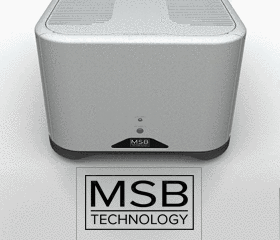I think you just identified the entire scope of the problem for describing high end componentry for about the past 40 years. It's like saying that each time someone tries to leave the room, they will only get half way towards the exit door. Here we are years later, yet only incrementally closer to the door descriptively. Look at the descriptors in Stereophile and TAS from 30+ years ago. You can essentially lift them and put them into today's publications with nary any differences to today's writings. It's a fascinating problem. If every new piece of gear "blows away" its predecessor, one might assume we started somewhere with 2 Dixie-cups and a string. In fact we started with such venerable pieces as the Marantz Model 7 and 9's, ARC SP-3's, KLH-9s, JBLs, Bozak, etc. Of course our gear today is better, but how much better? Is the amount "better" consistent with the modern descriptors and writings, or is it mostly hyperbole and exaggeration to a great degree? One can't help but wonder. Writing about products with such liberal use of lofty superlatives is certainly all part of the game I suppose. It is also one that as consumer's we a partly responsible for (because we enjoy reading about gear written in this way). That, too has entertainment value. But perspective is also important. Perhaps we should have a new descriptor for all newly described sensational gear? It could be something that describes, say, a "merit/hype" factor? This should be a number that easily conveys in a glance how much of the new product is substantive improvement and how much is hype? A number of about 0.2 strikes me as about the right balance to start. By using such a merit factor, one might also more easily compare the writings of the various journalists in some way that normalizes their opinions. For example, a "merit" factor of 0.2 given by somebody such as Robert Greene could be the rough equivalent of a "merit factor" of 0.9 by Jon Valin, who more often than not thinks the latest of whatever he heard, is the best he ever heard (talk about getting half way to the door each time!). That's not to say what Jon writes is not worth reading. It generally always is! But now we'll have a way of putting his "superlatives" in line with the ramblings of far more conservative writers. It won't take long before we come to appreciate that a "MF" (merit factor) of 0.9 by Valin is roughly the equivalent of a MF of say, 0.4, by John Atkinson or a 0.6 (?) by the venerable HP and a 0.7 (?) by Fremer. Anyway, you get the idea. Besides, it's pretty much what we do unconsciously anyway when we read our favorite reviewers. It's one of the saner approaches to dealing with the ever grander descriptors of the latest gear which in and of itself is frequently hindered by the self-fBulfilling prophecy of inappropriate aggrandizement.



















